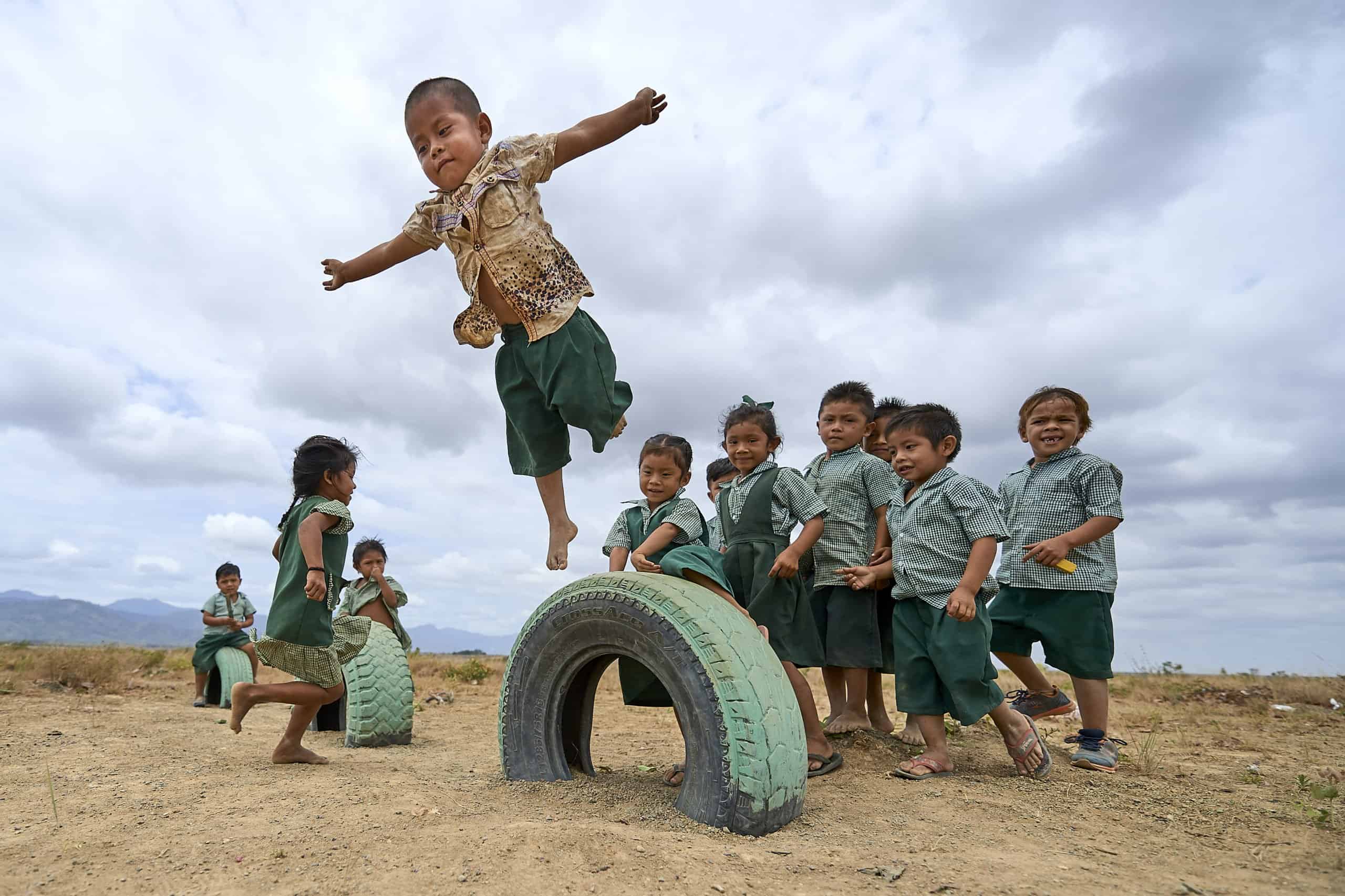In the midst of so many issues in our world we can often forget the joy that the Gospel brings. Pope Francis’ post-synodal apostolic exhortation Querida Amazonia (Beloved Amazon) brought joy to my heart as I read it and it will certainly be received with joy by many Amazonians.
I have spent the last two years working with indigenous youths in Guyana as a part of my Jesuit training. Much of my time was spent listening to their dreams and concerns about the future as we taught each other about life. One of the most common sentiments expressed by them and by village elders was the feeling of not being recognized, valued or truly “seen” by outsiders. Their desire was to mean more than the knowledge about culture, medicine and traditions that researchers often want to extract from them. They wanted to be loved. Researchers, government, civil society groups and even the Church can at times approach indigenous peoples with preset agendas and do not take the time to foster relationships and contemplate their beauty and that of the environment. Pope Francis’s “love letter” to Amazonia is a meaningful start to engagement with the Amazon region.
We protect the people and the things that we love and enjoy. Beloved Amazonia is meant to awaken our affection and concern for that land which is also “ours”, and to invite us to value and acknowledge her as a sacred mystery (5). Pope Francis wants us to develop a loving, caring and hopeful outlook as we confront challenges in our own context. His focus on the affective dimension can be seen in his use of poetry throughout the document in order to convey what cannot be merely said but which has to be felt. Our encounter with and response to the Amazon and its challenges has to come from an outlook of love. Francis’s dreams are grounded in reality and are very much the dreams of the Amazonian people.
Mauricio López, the executive secretary of REPAM (the Pan-Amazonian Ecclesial Network which coordinated the synod’s consultation process) observes that there has been a lack of understanding in the many commentaries written about the Pope’s exhortation and about the synod. He sees this misunderstanding as coming from people who are not truly concerned with the Amazon and its peoples. The excessive focus by many in the media and in the Church on just one out of the 200 proposals shows a lack of love for Amazonia and neglects what the Pope declared as the aims of the synod. From its inception, the crisis of the Amazon biome and threats to the well-being and faith of indigenous peoples were the underlying motivations for the synod.
The synodal process allowed voices that are usually disregarded to rise from the periphery to the center, but polarizing voices in the Church and media have largely tended to ignore the essence of what these voices have been asking for.
Many of the dreams of the Holy Father in Querida Amazonia resonate with the dreams I heard from people in Guyana. One case is that of parents who hoped that their children would stay within the community and not have to go elsewhere. Migration usually means facing exploitative situations for years with limited communication with family.
For example, one young man shared his experience of being lured to a mining camp with the promise of fast money only to find himself trapped in a cycle of making just enough to pay the large sums required for food and accomodation. Poor working conditions quickly led to illness and he returned to the village much “poorer” than before. His parents were overjoyed at his return and the community helped him to find employment within the village.
Another common dream is that of a good and holistic education. Parents desire an education for their children which values culture and integrates languages from an early age, such as the Quality Bilingual Education Program facilitated by the Jesuits. An education which empowers without uprooting (17, 28) will allow their conceptions of the good life to materialise. Many young people love farming but are ashamed to admit this since outsiders would often tell them that they should be “upgrading” themselves by getting office jobs. They wish to not be perceived as backward or primitive for their holistic conceptions of the “good life”. Surely the world needs more farmers! Rather than forcing a preconceived pattern of “development” on people, locals should be encouraged to live according to their own standards for quality of life.
Ultimately, the pope reminds us that indigenous peoples can teach us how to love, contemplate, and feel intimately part of the Amazon Region instead of dispassionately analyzing it (55). As the Church becomes more incarnate in the territory, it seeks to ensure that it is not just another entity which comes in with promises and predetermined solutions and fails to truly look at the people. Villages desire pastoral workers who love them, affirm them, live with them, and want to remain with them despite challenges.
Listening to the hopes and struggles of the Amazonian peoples in the light of the Gospel invites us to love and contemplation. This is what was done at the synod. Listening to nature and to those who are crying out in our midst such as refugees is the first step towards loving and “right” relationships. The ultimate question we should each ask in our own context is “How much do we love our common home and our fellow human beings?” Perhaps the answer to this will, as in Pedro Arrupe’s well-known prayer: “decide everything”.


